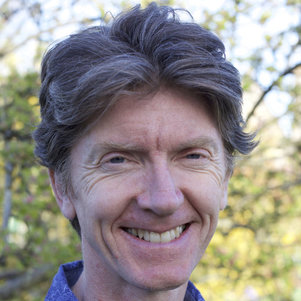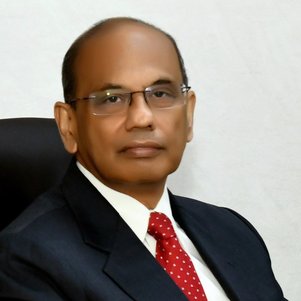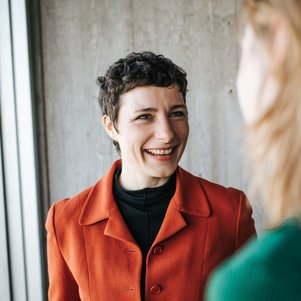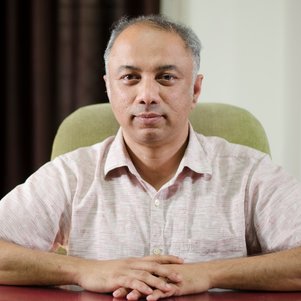
Professor Patrick Devine-Wright
Biography
Patrick Devine-Wright is an environmental social scientist with a primary interest in social acceptance of energy transitions, community engagement and place attachment. With expertise spanning human geography and environmental psychology, he was cited in the top 1% of social science scholars globally by Web of Science in 2019 and 2020. He is an IPCC Lead Author on social aspects of climate change mitigation, member of IEA Task 28 on social acceptance of wind energy, Chair of the Devon Net Zero Task Force, sits on the National Advisory Group for EirGrid (the Irish grid operator), and is a Director and former Chair of Exeter Community Energy. He received a Distinguished Visiting Scientist award from CSIRO, Australia (2012-2013) and is Adjunct Professor in Geography, Trinity College Dublin. He is a editorial board member of journals including Global Environmental Change, Energy Research and Social Science, and the Journal of Environment Psychology; acts as an advisor to the UK government, and has collaborated with energy companies in the UK and Ireland.
Summary
That energy transitions are both social and technical in nature is now commonly recognised by academics and policy makers. Yet despite recent advances in the study of social acceptance, energy justice and energy democracy, there remain substantial limitations in the ways that energy transitions are commonly theorized when it comes to matters of space and place. Furthermore, prevalent assumptions such as NIMBYism (Not in my back yard) provide negatively oriented, unhelpful and inaccurate framings of socio-spatial and socio-technical dimensions of change. This presentation aims to elaborate positive principles for energy transitions and social innovation centered on Place and Participation. Importantly, these principles are viewed relationally amidst wider precarities and insecurities arising from globalization, populism, COVID-19, Brexit and Climate Emergency. Drawing on empirical examples of social and democratic innovation across a range of research projects (ASSIST, EnergyRev, SHIFFT and the Devon Climate Assembly), I will provide critical arguments for why Emplacement and Empowerment provide foundations of hope for rapid and extensive energy transitions that are also considered fair and acceptable by local communities and societies more generally.

Doctor Ajay Mathur
Biography
Dr Ajay Mathur is the Director General of the International Solar
Alliance. He earlier headed The Energy and Resources Institute (TERI), and the Indian Bureau of Energy Efficiency (BEE), and was responsible for mainstreaming energy efficiency in houses, offices and industries through a number of innovative initiatives. He was a leading climate change negotiator, and was the Indian spokesperson at the Paris climate negotiations. He served as the interim Director of the Green Climate Fund during its foundational period.
At TERI, he has spearheaded the move to accelerate action towards a low-carbon and cleaner economy through the adoption of renewable energy in the Indian electricity sector, enhancing efficiency in buildings and industry, and promoting environmental quality through recycling of material wastes and biotechnology-based solutions. He also anchored the annual World Sustainable Development Summits during his tenure at TERI.
He was also member of Indian Prime Minister’s Council on Climate Change and co-chairs of the global Energy Transitions Commission.

Doctor Julia Wittmayer
Biography
Dr. Julia Wittmayer holds the position of Assistant Professor with the Erasmus School of Social and Behavioural Sciences (ESSB) and works as senior researcher and advisor at DRIFT, both at the Erasmus University Rotterdam. Her work focuses on social innovations in, and governance of, processes of transformative change in urban areas, on local scale and in the context of energy system change. Next to being involved in or leading a variety of research projects, including SONNET (Social Innovations in Energy Transitions, 2019-2022), and TOMORROW (2019-2022), Julia has been engaged in policy advice for local, national and European governments and their advisory bodies. Recent academic work has aimed at broadening our understanding of social innovation in energy and at considering the mainstreaming of renewable energy prosumerism. To support knowledge development and transformative action addressing societal challenges, she develops and implements collaborative research formats and was recently appointed academic lead for ‘Transformative Research’ at the Design Impact Transition Platform of the Erasmus University.
Summary
At the ‘Social innovation: next steps in the energy transition’ conference, her contribution will address the transformative potential of social innovation in energy systems. She will provide a systematic overview of the different types of social innovations in energy, zoom in on their emergence and development over the last decade and discuss the (potential) changes in social relations and dominant institutional logics in energy systems.

Doctor Harish Hande
Biography
Harish Hande (Founder and CEO, SELCO Foundation) is recognized as a pioneer of rural energy service across the globe. He wanted to bust the myth that while solar energy is environmentally desirable, it is very expensive and only the rich can afford it. Through SELCO, Harish successfully demonstrated that decentralised energy solutions particularly those powered by solar, can be truly sustainable, provided it is implemented combining appropriate technological, financial and ownership models suited to the cash flows and local contexts of the poor. In order to catalyze deployment of sustainable solutions, SELCO operates at every level of the system and at every point in the supply chain, to build an ecosystem that increases accessibility, affordability, and appropriate renewable energy solutions for the poor. Today, SELCO is an umbrella of organizations, each tasked to address gaps in the energy access ecosystem namely SELCO India (1995), energy access enterprise; SELCO Foundation (2010), non profit R&D, SELCO Incubation Centre (2012), nurturing grass roots energy enterprises and finally SELCO Fund (2016), deploy patient capital.
For his pioneering efforts, Harish has received many national and international awards including more recently, the Skoll Award for Social Entrepreneurship (2018) and Asia's prestigious Ramon Magsaysay Award (2011) for “his pragmatic efforts to put solar power technology in the hands of the poor, through his social enterprise SELCO India”.